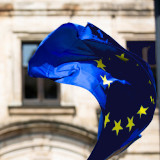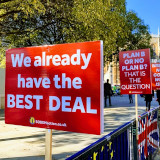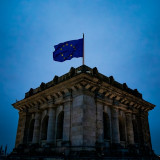We should not let EU fall apart
Nothing will stand if we don’t defend what we have achieved after so many generations of sacrifice. We have the obligation to save the Union but also to fix what is broken.

From Napoleonic wars, each time the new post-war European order lasts a while – sometimes shorter, sometimes longer – but gradually frays at the edges, with tectonic tensions building up under the surface, until it finally breaks apart in a new time of troubles. No European settlement, alliance, coalition or union lasted forever. None of radicalisation and disintegration is inevitable, but to avert it, we have to understand how we got here, and why this EU, with all its faults, is still worth defending.

For centuries, Europe kept tearing itself apart, but all the while exploiting, colonising and bossing around other parts of the world. Europeans made history once again for a brief shining moment in 1989, but then the “world spirit”, moved rapidly on from Berlin to Beijing. Today, Europe struggles to remain a subject rather than becoming merely an object of world politics. China, Russia and US are contesting to shape 21st century, and climate change threatening to overwhelm them all.

Of course, Europe means many different things. It is a continent with ill-defined borders, a shared culture and history, a contested set of values, a complex web of institutions and, not last, hundreds of millions of people, all with their own individuality.The problems appeared with large-scale migration from the poorer countries of eastern and southern EU to the richer ones of northern Europe – be it the internal movement of more than 2 million east Europeans to Britain or the influx of more than 1 million refugees from outside the EU to Germany.

When the global financial crisis hit, it exposed all the inherent flaws of a halfway baked EU. Hastened into life as a political response to German unification, the EU that we have today, a common currency without a common treasury, hitching together such diverse economies as those of Greece and Germany, had been warned against in vain by numerous economists. Absent a decisive, far-sighted response from northern Europe, and especially from Germany, the impact on southern Europe was traumatic.

The EU crisis kick-started a new wave of radical and populist politics, on both left and right, and with mixtures of left and right that don’t easily fit into that old dichotomy. Upcoming populists blamed the sufferings of “the people” on remote, technocratic, EU liberal elites. Although members of the EU parliament are directly elected, the parliament can at times seem like a bubble within the Brussels bubble. Their remuneration is meagre compared to that of the bankers who nearly crashed the globalised capitalist system. But parliamentarians and officials are still very well paid.

The toe-curling British government national promotion campaign leading to Brexit was built around the motto “Britain is GREAT”. Countries that feel the need to proclaim in capital letters that they are great probably no longer are. With aggressive politicians like Farage around, we have to start defending EU that already exists, but is now threatened with disintegration. If the foundations were so strong we could without hesitation say “EU is great!”. In this case it would not need our support so badly.

The EU today is a mature political entity, which does not need to derive its legitimacy from some utopian future. There is now a realistic argument for maintaining what has already been built. If we merely preserved for the next 30 years today’s EU, at its current levels of freedom, prosperity, security and cooperation, that would already be an astonishing achievement. In a long historical perspective, this is the best Europe we have ever had. The EU liberal democracies are committed to resolving their differences by all-night meetings in Brussels, not unilateral action, let alone armed force.

This European Union is not a country, and will not become one any time soon, but it is much more than just an international organisation. For everyone who is a citizen of an EU member state, this is a continent where you can wake up in the morning, decide to take a budget airline flight to the other end of the continent, meet someone you like, settle down to study, work and live there, all the time enjoying the rights of a European citizen in one and the same legal, economic and political community.
Quote
It is not the strongest of the species that survive, nor the most intelligent, but the one most responsive to change. --Charles Darwin